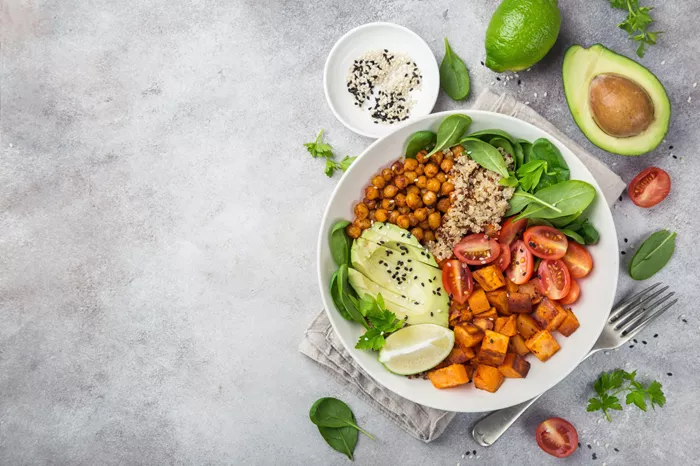In the quest for healthy skin, sunscreen is often the first line of defense against the sun’s harmful rays. However, recent research suggests that what we eat can also play a crucial role in skin protection. Scientists have discovered that our body’s ability to repair sun-damaged skin may be influenced by our eating patterns, thanks to what they call the “skin clock.”
Led by Joseph S. Takahashi, PhD, chairman of neuroscience at the Peter O’janelli Jr. Brain Institute, University of Texas Southwest Medical Center, a study found that enzymes involved in repairing UV-induced skin damage operate on a daily cycle, which can be affected by meal timing.
“Instead of opting for midnight snacks, incorporating certain healthy foods into your breakfast could enhance skin health,” recommends Dr. Takahashi.
Blueberries are highlighted for their abundance of antioxidants that combat free radicals, which can damage skin under sunlight and stress. They also provide vitamin C, known to aid in preventing wrinkles. Incorporating blueberries into breakfast can be as simple as adding them to smoothies, juices, or using them as pancake toppings.
Tomatoes are renowned for containing lycopene, a potent antioxidant that absorbs both UVA and UVB radiation. However, watermelon actually boasts even higher levels of lycopene. Research suggests that regular consumption of watermelon over several weeks can enhance the skin’s natural defense against sun damage, though it’s not a replacement for conventional sun protection methods like SPF and protective clothing.
Omega-3 fatty acids, found in foods like walnuts, hemp seeds, and fish, are crucial for maintaining skin integrity and reducing inflammation. These fats also aid the skin in recovering from excessive sun exposure.
Beta carotene, found in vegetables like carrots, kale, and spinach, converts to vitamin A in the body, essential for skin health. Studies indicate that regular consumption of beta carotene-rich foods can provide natural sun protection after several weeks.
Additionally, green vegetables such as kale and spinach contain antioxidants like lutein and zeaxanthin, which protect against wrinkles and sun damage, potentially lowering the risk of skin cancer.
Studies involving green tea have shown promising results in animals, suggesting that its flavonoids can reduce skin tumors caused by UV rays and protect against collagen degradation, crucial for maintaining skin’s firmness.
While brightly colored fruits and vegetables are generally rich in antioxidants, cauliflower stands out despite its pale appearance. It contains antioxidants that combat oxidative stress and, uniquely, histidine, which stimulates the production of urocanic acids, aiding in UV radiation absorption.
In conclusion, while sunscreen remains indispensable for protecting the skin from the sun, integrating a variety of these nutritious foods into your diet, particularly at breakfast, can provide additional support in maintaining healthy skin. By leveraging these dietary strategies alongside conventional sun protection methods, individuals may enhance their skin’s resilience to sunspots and damage over time.
Related topic:
TikTok’s’Morning Shed’ Skincare Craze Under Scrutiny
Wake Up to Radiant Skin: Top Picks for Overnight Sleeping Masks
Summer Skincare Essentials: A Guide to Healthy and Glowing Skin


